The Arctic has warmed more quickly over the last century than the rest of the planet, a warming observed to be about 1.2 degrees Celsius. According to a new study, this warming could have been even worse. Aerosols, particles or droplets created as a byproduct of human activities such as the burning of fossil fuel, […]
Tag: environment
Language evolves faster in isolated populations
Changes in genetics and language follow similar patterns as human population disperse, however language is able to spontaneously change in isolated populations. Both genetics and language change over time as small mutations in genes or phonemes, like the ‘k’ sound in ‘cat’ or ‘skill’, accumulate or are lost. Additionally both language and genetics change by […]
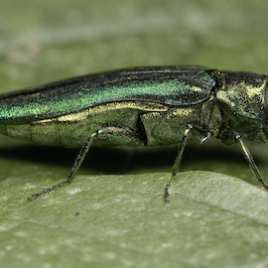
The Emerald ash borer can attack other tree species
New research shows that the emerald ash borer, an invasive beetle from Asia which has killed millions of ash trees in Canada, can also attack the white fringetree (Chionanthus virginicus). This small shrub, while native to the southeastern United States, is planted ornamentally in Ontario and Quebec. Researchers have found that white fringetrees in three […]
How much fossil fuel can we exploit?
Canada would need to leave 75 per cent of its oil in the ground as part of a global effort to cap global warming at two degrees Celsius above pre-industrial levels, a new study shows. The authors also conclude that the exploitation of resources in the Arctic should be ruled out. Using computer models, the authors found that […]
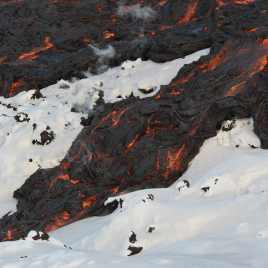
What happens when lava meets snow?
Mixing lava with snow might seem to raise the risk of flooding for nearby settlements, but in fact it appears lava does not interact much with snow. Researchers in Eastern Russia, at the Tolbachik volcano, studied how snow and lava interact to determine the effects on lava advance and snow pack melting rates. Sheets of […]
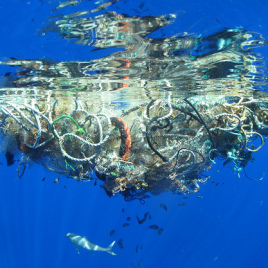
Thousand tons of plastic floating in the oceans
At least 269,000 tons of plastic pollution could be floating in the world’s oceans, according to a new study. Researchers collected small, floating plastic particles across the Atlantic, Pacific and Indian Ocean as well as off the coast of Australia, in the Bay of Bengal, and the Mediterranean Sea between 2007 and 2013. They then […]
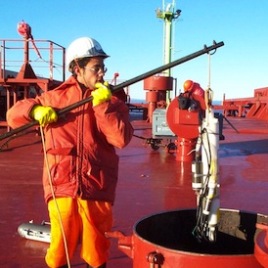
How risky is ballast water?
Many invasive species – e.g. zebra mussels – hitch a ride across oceans in ships’ ballast water, but a new study shows that some trips may pose more risk than others. Researchers sampled ballast water each day as ships crossed the ocean and discovered that invasive species are more likely to survive a shorter trans-Atlantic […]
Carbon dioxide warming effects felt 10 years after being emitted
It takes ten years for an emission of carbon dioxide (CO2) to have its maximum warming effects on the Earth, a new study shows. It was previously thought that the warming effects from a CO2 emission would not be felt for several decades. The authors conclude that benefit from avoided CO2 emissions, and thus avoided droughts, […]
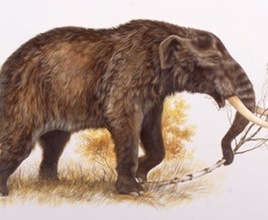
Resolving a mastodon mystery in the Yukon
A re-examination of mastodon fossils from Alaska and the Yukon indicates that they are much older than previously thought. Previous studies dated the fossils to the last ice age, about 18,000 years ago. However, at that time the area was largely grassland, and mastodons were forest-dwelling animals. The new study used modern radiocarbon dating methods […]
Atmospheric pollutant hides in the dirt at night
A new explanation for rising and falling concentrations of the atmospheric pollutant nitrous acid (HNO2 ) could help predict ‘smog days’. Nitrous acid is quickly destroyed by sunlight in the atmosphere, but nevertheless it can build up to detectable levels during the day, pointing to an unknown source. The new study explains how HNO2 created […]
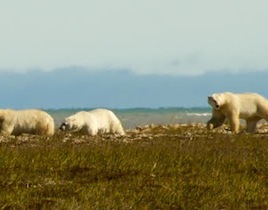
Melting ice could jeopardize 25% of polar bears by 2100
A new study suggests that if arctic warming trends continue, a quarter of the world’s polar bears will be unable to survive by 2100. The study uses a climate model to create detailed projections for the ice cover in the Canadian Arctic Archipelago, the series of islands and channels that dominate the far North of […]
Chickadees can resist cold down to -10°C
Black-capped chickadees’ ability to resist cold temperatures by increasing their own heat output maxes out at about -10 degrees Celsius, according to a new study. After that point, they seek shelter from the cold rather than remain outside dealing with it. The study is the first to suggest that birds have a limit on their […]
A cool way to cool
Researchers have created a new rooftop cooling device that works under direct sunlight, without electricity, by emitting back heat radiation into space. The authors have produced a multi-layered solar reflector made of hafnium dioxide (HfO2) and silicon dioxide (SiO2) that reflects 97 per cent of sunlight at a frequency called the ‘infrared atmospheric transparency window’ […]
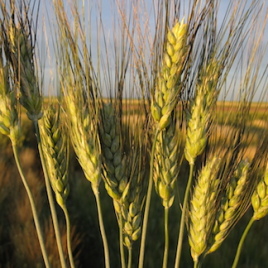
Towards carbon neutral wheat production
Improved practices in the farming of wheat could lead to a significant reduction in its carbon footprint according to a new study. With the changes suggested by the researchers, the carbon footprint of wheat could potentially be lowered to the extent that it removes more carbon dioxide from the atmosphere than is emitted during production. The […]
Does ecology influence religion?
A new study suggests that environmental factors, alongside social and cultural factors, may play a strong role in determining the type of religion associated with a particular society. Researchers analysed 583 societies around the world to determine the role played by linguistic, historical, cultural and environmental factors in the dominant religion. In particular, they found […]
Everything you want to know about climate change in three easy lessons
The Pacific Institute for Climate Solutions (PICS) recently released the third and final installment of Climate Insights 101, a free online course designed to help journalists and the public get up to speed on the best available peer-reviewed science about climate change. The new installment, BC Climate Impacts and Adaptation. Through videos and test-your-knowledge sections the […]